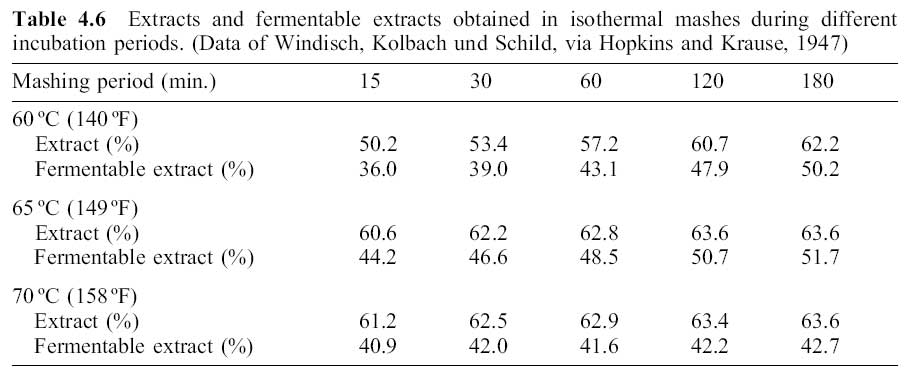stoutaholic
Well-Known Member
Does anyone know of a chart that describes the time that it takes beta and alpha amylase to denature at a given temperature?
For instance, I'm looking for something like this:
Beta-Amylase
Temperature (F) 150 151 152 ...
Time to denature (min) 35 37 39 ....
etc.
In addition to the time it takes for the enzymes to be denatured, it would also be extremely helpful to know the percentage of starches that are converted to fermentable and unfermentable glucose chains for a given malt in a given period of time at a given temperature. For instance, if there was some data that said: At 10 min at 150 degrees, malt X will have converted 70% of its starches, and this conversion will consist of 67% fermentable and 33% unfermentable sugars. Does anyone know of any experiments that have documented this kind of thing?
For instance, I'm looking for something like this:
Beta-Amylase
Temperature (F) 150 151 152 ...
Time to denature (min) 35 37 39 ....
etc.
In addition to the time it takes for the enzymes to be denatured, it would also be extremely helpful to know the percentage of starches that are converted to fermentable and unfermentable glucose chains for a given malt in a given period of time at a given temperature. For instance, if there was some data that said: At 10 min at 150 degrees, malt X will have converted 70% of its starches, and this conversion will consist of 67% fermentable and 33% unfermentable sugars. Does anyone know of any experiments that have documented this kind of thing?


